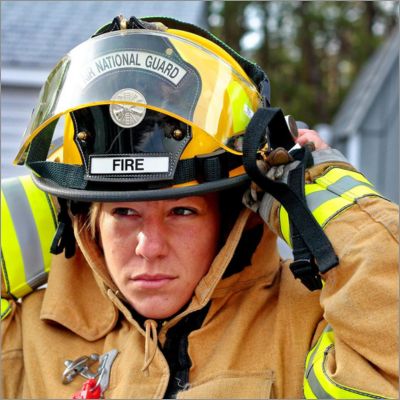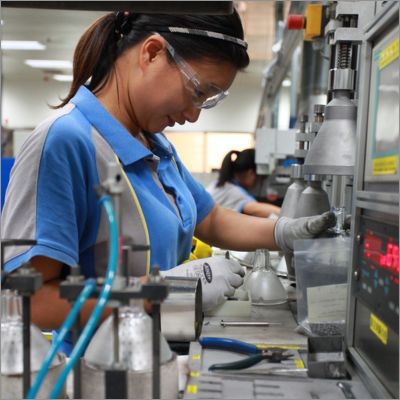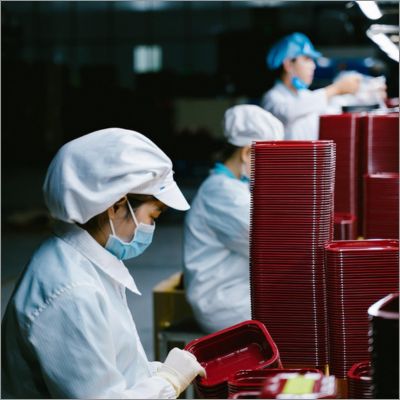It is not just about the delicious tastes and comfortable beds that your guests are seeking in the competitive market of today. They want, and are supposed to have, safety. Your employees, including chefs and waiters, housekeeping and baristas, are on the front lines of delivering on that promise.
Why Hospitality Hygiene Is Vital?
Hospitality is all about making memories, and hygiene is a great contributor to the kind of memories that can be made. Lack of care of hygiene can result in severe issues such as:
- Visitors are becoming ill due to bad food.
- Negative online reviews can easily ruin you.
- Fining or even closing down your business by health inspectors.
Consider hygiene as a silent agent for your brand. It implies to your customers in a subtle way that "we look after your safety and comfort in the small details."
The Scope of Hospitality Staff Hygiene Training
The solution is good hygiene training of hospitality staff. It goes beyond telling the employees to wash their hands. It is about creating awareness, forming habits, and creating accountability on each level of food handling and contact with the guest — all of which are supported through structured employee training
Below is what good hospitality staff hygiene training includes:
- Techniques of hand washing, grooming, clean uniforms and good use of protective equipment such as gloves or hairnets.
- Knowledge of cross-contamination hazards, storage and handling of raw and cooked food.
- Washing and cleaning platewares, washing down surfaces and ensuring regular disposal of waste to reduce bacteria.
- Promoting the idea of staying home when ill and not taking unsafe shortcuts as well as being disciplined even when the service is on peak.
Staff will be more receptive to training when it is interesting, practical and hands-on, rather than when they have to do it.
Programs for Food Safety Compliance
Compliance does not simply mean passing inspections. Food safety compliance training programs are made to ensure consistency in practice to protect the guest and staff, at the same time allowing your business to run smoothly. These programs are compatible with the regulations set by various organisations such as the FDA, HACCP (Hazard Analysis and Critical Control Points), and local health departments.
The major components of compliance programs are:
- Identifying hazards: Educating employees to be aware of the dangers associated with food-borne pathogens, allergens and improper food preparation practices.
- Routine Audits and Evaluations: Arranging internal checks that reflect what the external auditors seek during a surprise audit.
- Clarity of SOPs (Standard Operating Procedures): The process of outlining step-by-step procedures on all aspects, including taking deliveries and serving food.
Productive Training Formats
Okay, let's face it. Not every training is great. If you've ever been stuck in a lecture full of confusing stuff, you know people don't learn much. Staff hygiene training in hospitality is way better when it's hands-on, useful, and ongoing.
Here are some training methods that actually work:
- Workshops with Practice: Teach handwashing by actually doing it, not just looking at a presentation.
- Real-Time Training: Managers show staff what to do while they're on the job.
- Online Courses: Easy ways for new people to learn or for others to brush up on skills.
- Practice Scenarios: Acting out real situations, like dealing with food orders when it's super busy.
Common Hygiene Practice Gaps
Even with practice, things can still get missed. Spotting these means your programs for food safety compliance are useful and make sense.
- Quick Hand Washing: Workers might rush or skip washing when it gets busy.
- Wrong Use of Gloves: Gloves are not considered a cure-all, but many people forget to replace them.
- Unmonitored Temperatures: Not properly monitoring cold storage when you get too busy.
- Lazy Cleaning: Quick wiping over cleaning
- Communication breakdown: Kitchen staff and servers are not being clear in their communication, which can lead to allergic reactions
Patching things up most of the time can be done during training, and getting feedback showing how to handle these issues.
Perks of Training Hospitality Employees in Hygiene
Now, you would ask: Is it worth investing? Absolutely.
- Less risk of outbreaks of foodborne illnesses.
- When clean and professional staff are performing visible hygiene practices, visitors are reassured.
- Good guest experiences are directly related to reviews, loyalty, and word-of-mouth recommendations.
- When employees are trained appropriately, they feel prepared, appreciated and responsible.
- When compliance has already become part of everyday business, inspections no longer remain fear-producing.
Real-World Scenario
Buffets are a highlight, but they can also carry a considerable risk of infection. The best way to protect yourself is to make sure that your staff is well-trained, so sneeze guards are always kept in place and properly maintained, your surfaces are cleaned, and food is rotated so it doesn't sit out too long. It also means utensils are changed often, and staff keep an eye on interactions between guests in a discreet way in order to keep things both safe and comfortable. While these details may not always be consciously noticed, guests can feel the difference – a clean and well-maintained buffet with attentive staff leaves a far better impression than one that is poorly attended.
Including Hygiene in Culture
Even the greatest programs for food safety compliance can miss the mark if cleanliness is an afterthought. The secret lies in making hygiene a core part of your company's culture. When clean practices become everyday habits and values, they turn into a standard everyone sticks to.
One approach to this is to lead by example. Bosses and team leaders should always show top-notch hygiene habits giving others a model to follow. Also, giving praise for good work makes a big difference – recognizing teams or people who show safe practices helps keep everyone on board.
It's also crucial to get employees involved in solving problems. When you push staff to talk about the issues they run into and come up with solutions together, you make them feel like they're part of the scene, put up signs, chat about it at the start of each shift, and run quick courses to remind everyone that cleanliness matters all the time.
Technology as an Aid for Hygiene
In today's digital world, tech can really help with hospitality staff hygiene training.
- Think apps or online learning systems that let staff train whenever, wherever.
- Also, smart thermometers can track temperature and flag any issues.
- You can even use automated schedules to remind different teams about cleaning.
- Digital checklists also make recording keeping easy and cut down on mistakes.
Technology isn't there to take over – it just backs up your staff by cutting down on errors and keeping things consistent.
Food Safety Training's Future
The hotel industry is changing rapidly, and cleanliness demands are rising quicker than ever. Future food safety compliance activities will most likely focus on allergen awareness, ensuring that personnel are well-equipped to address specific dietary needs. With AI-powered monitoring systems providing smarter ways to track and exceed safety regulations, technology will play an increasingly important role.
Also, using green cleaners and stuff like that will be part of following the rules. Training will get more personal too, with lessons made just for what each job needs. If businesses get ready for this stuff now, they can keep up with the tougher rules and still make their guests happy.
Concluding Thoughts
In the hospitality biz, the little stuff can really matter. Like, keeping things clean – it's quiet but super important. Guests usually only notice when it's not done right. So, when you set up hospitality staff hygiene training and include food safety in what they do every day, you're not just following rules. You're building trust with your guests, helping your team, and keeping up with your brand image.
When your team washes hands right, really cleans a counter, or is careful with allergens, it's more than just following rules. They're keeping people safe, making good things happen, and making sure your business stays awesome, because one slip-up can mess up all your effort.
Related Posts

24 October, 2025



